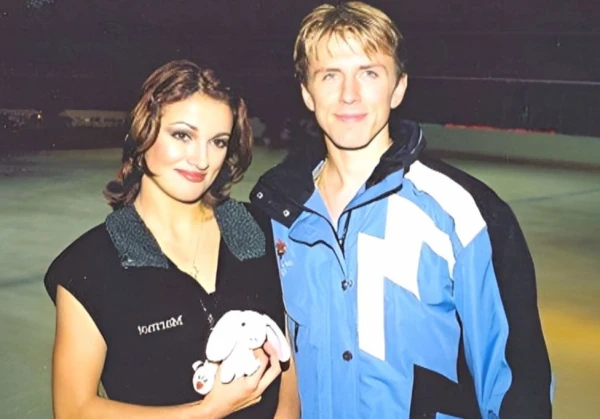
Every parent wants their child to grow up successful, strong, and independent. Each has their own vision of the process of becoming and the result. But what unites most of these parents is anxiety, which manifests itself in their parenting style.
It seems that a child needs to be directed, shown the way, explained everything properly, convinced that they should want the right things. And the thin line that parents often cross is noticeable, not out of malice, but out of anxiety, love, and the desire to "give the best": instead of support, the child mainly feels pressure.
The problem is that it does not help cultivate inner strength in the child; on the contrary, it weakens them. It creates a fear of making mistakes, a habit of pleasing rather than acting based on their own good intentions, and a feeling of "not being enough just to be myself to be accepted."
There are signs that indicate when parents begin to excessively influence their child. And there are already studied results of what such excessive care leads to. Elena Kalashnikova — a child family psycho-consultant elaborated on this.
Parents Often Say "It Has to Be This Way" Without Explanations
For example, by saying phrases like: "All children at this age do it already," "Because I told you so," "Don't argue with adults."
Such phrases leave the child no chance to understand why something is important. They do not develop internal motivation, only external: to avoid upsetting, to escape pressure, to avoid irritation, to not listen to another lecture. Over time, the child develops a dependency on other people's rules, which hinders the creation and even the internal hearing of their own.
Parents Often Correct Almost Every Little Thing
When the child is drawing, their lines are corrected. When doing homework, even the margins are checked. When they tell something with a mistake, they immediately hear a correction. It seems like care, but the child receives the signal: "I can't do it well on my own."
And gradually they stop even trying. There is even a term for this: learned helplessness — "why bother, they will find a mistake anyway."
Parents Are Irritated by Disorganization, Slowness, Laziness, and the Habit of Getting Distracted
Pressure often masquerades as caring demand. But it sounds with irritation and constant comparison. And this is no longer motivation, but constant negative stress. For example, phrases like: "Look, Matvey does everything by himself already," "You're smart, what's stopping you?" may be heard.
Outwardly, the child may agree. But inside, shame accumulates, feeling that they are not as they should be. It is from this shame that traumatic perfectionism or uncontrollable internal rebellion is born.
Parents Decide for the Child What They Need
They choose clubs without working on the child's motivation and interests, food, friends, clothes, even how to relax, because "it's better for them this way." But every time the child is not given the right to choose, they lose a connection with themselves, which is very difficult to restore later.
As they grow up, such children often say: "I don't know what I want." It is easier for them to live according to others' expectations than to understand their own desires.
Parents React with Irritation to the Child's Feelings
Everyone remembers phrases like: "Why are you crying again?", "Don't make things up, everything is fine." "All you know how to do is be offended." Such words suppress contact with feelings.
This also hides anxiety: the parent cannot bear to see the child's weakness, they want to "fix" them, make them convenient and calm. And so the child learns to suppress emotions rather than experience them. As a result, next to loved ones, they become pleasing rather than real and alive.
Parents Fear Children's Failures
This can be noticed when they do homework for the child, anticipate mistakes, smooth out consequences. Children normally relate to mistakes as part of growth until they encounter the fact that their parents panic at their failures.
The seemingly soft but very palpable pressure of this kind does not give the child the opportunity to experience the lesson of a mistake and recover. To feel their own growth and success. And it is precisely through this process that willpower, determination, and resilience develop, not through perfect results.
It Is Difficult to Let Go of the Child
Parents control their correspondence, check grades, and preemptively ask other parents what, where, and with whom their child will be. This creates an illusion of immediate safety but seriously undermines trust. The child feels: "I am not trusted. Therefore, I won't manage."
Often, it is from such families that teenagers later go to extremes: harsh protest or complete dependence.
What Are the Dangerous Consequences of Pressure:
- increased anxiety, especially in new situations;
- a tormenting inner critic, inadequate demands on oneself;
- difficulties in making decisions;
- low self-esteem despite external success;
- emotional distance from parents and lack of contact with oneself.
And the saddest thing, in my opinion, is that in relationships, the living sense of connection disappears, communication occurs out of a sense of duty rather than based on healthy attachment and trust.
What Can Be Done to Restore Balance?
Leave the child more space for choice. It is clear that this refers to options that are acceptable and safe according to age. But from a young age, they can be allowed to decide what to wear or how to distribute tasks for the day.
Learn to endure their feelings. Do not immediately calm them, do not devalue with phrases like "it's not a big deal," but just be there, saying: "I see that you are having a hard time right now." Replace control with interest. Instead of "Did you do it?" say: "How is it going with that? If you want, I can help you figure it out."
Remember that development does not go according to the parents' plan but according to the child's unique internal pace. And even if everything objectively indicates that the pace needs to be increased, it is important to learn to do this gently, without breaking the will and preserving the child's internal initiative.













Leave a comment